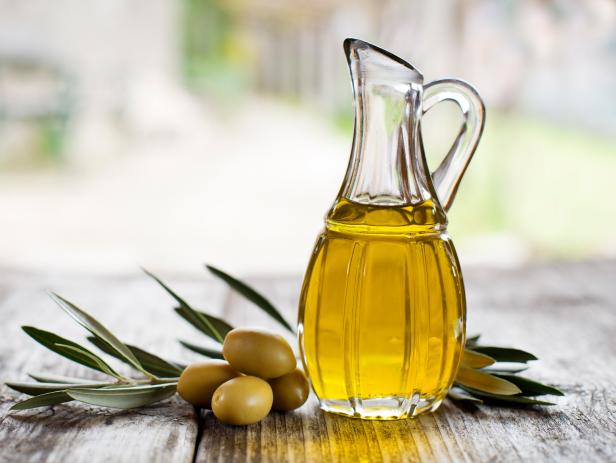Olive oil: The Olive tree (Olea europaea) belongs to the family of Oleaceae commonly found in the Mediterranean region. The oil produced from the fruit of the olive tree is called Olive oil. Olive oil is produced by pressing and crushing the fruits of the olive tree. Olive oil is a major component of the Mediterranean diet which is responsible for reduced risk of chronic diseases and increased life span in the Mediterranean population as compared to other populations of the world.
Grades of Olive Oil – Extra Virgin Olive Oil and Virgin Olive Oil
Olive oil comes in different grades which include unrefined (virgin) and refined grades. It is said, if oil undergoes less the process of refining by heat and other chemical treatment, better is the quality. Extra virgin oil is considered to be the premium quality of olive oil which is produced by the first pressing of olives and hence has maximum health benefits as they retain most of the nutrients. It is followed by virgin oil which is obtained by the second pressing of olives. And after subsequent refining processing, it gives olive oil or non-virgin quality. This oil is usually mixed with some virgin oil to retain its color and flavor which has gained high importance as a part of the culinary diet in European and Mediterranean regions. The oil is known for its anti-inflammatory and anti-oxidant properties. Before we understand the details let’s have a look at the components of olive oil.
Components of Olive Oil
The major components in olive oil are fatty acids known as monounsaturated fatty acid (oleic acid) which contribute to 96-98% of oil and the remaining constitutes include phenolics and sterols. These phenolic components which include oleuropein, tyrosol, and hydroxytyrosol are mainly responsible for the antioxidant, anti-inflammatory and anti-clotting properties of olive oil. They also contribute to the color and flavor of oil. Whereas olive oil possesses numerous therapeutic and medicinal properties because of its phytosterol components. Other minor components of olive oil which also contribute to its antioxidant properties are included with vitamin E. Therefore olive oil is considered to be one of the healthiest cooking oil and regular intake of this oil has shown a decreased risk of cardiovascular diseases, stoke, breast cancer, lung cancer and dementia. The high content of monosaturated fats in the form of oleic acid reduces the level of bad cholesterol and raises good cholesterol in the body.
Why is Extra Virgin Olive oil better than the Virgin variety?
The quality of olive oil produced mainly depends on the stage of pressing. When the anti-inflammatory health benefits were compared between extra virgin olive oil to that of virgin oil in one study, it was found extra virgin oil is much more powerful than virgin grade which is mainly due to the concentrations of phytonutrients (especially polyphenols). It was found that the olive oil produced from the first pressing of olives is the finest quality and it retains all the nutritive ingredients. When olive oil undergoes further refining process by the chemical treatment it loses its phytonutrients and hence the nutritive valve.





